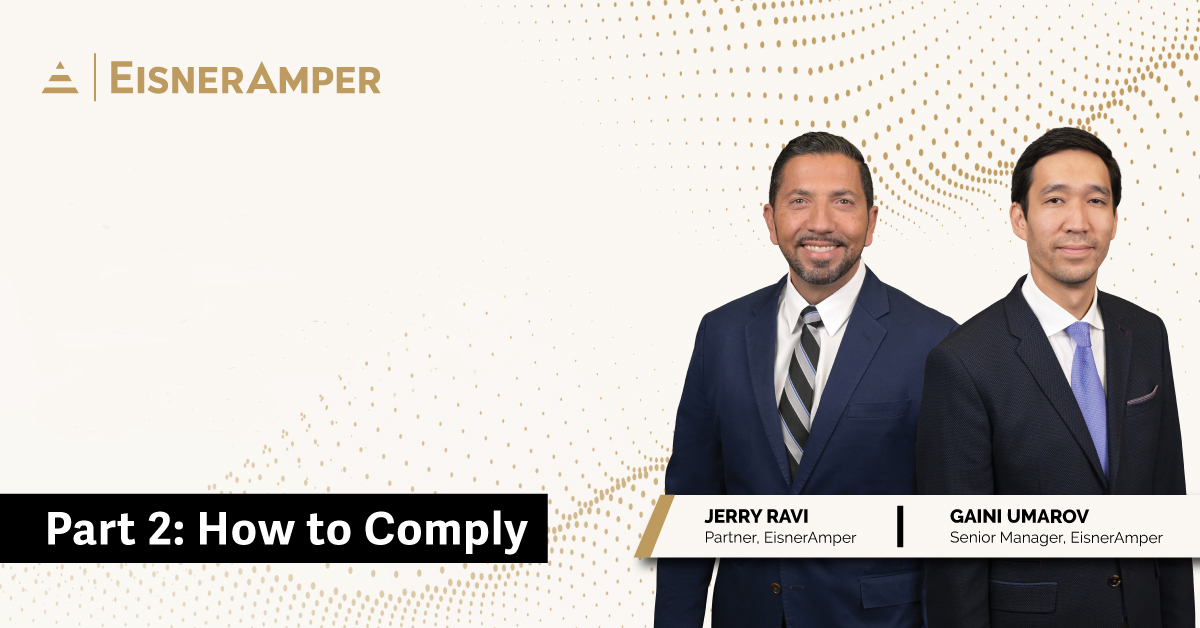SEC Proposes Rules Requiring Clawback Policies and Disclosures on Executive Compensation
- Published
- Sep 22, 2015
- Topics
- Share
Key Focus
- The SEC proposed rules directing national securities exchanges to establish listing standards requiring companies to claw back incentive-based compensation received by current and former executive officers during the 3 years preceding an accounting restatement.
- Companies would be required to file a recovery policy as an exhibit to their annual reports under the Securities Exchange Act.
- Companies that do not implement a compliant policy after a transition period would be subject to delisting.
- The comment period for the proposed rules will be 60-days once it is published in the Federal Register.
Summary
On July 1, 2015, the Securities and Exchange Commission (“SEC”) proposed rules that would direct national securities exchanges and associations to establish listing standards requiring companies to establish policies that require executive officers to pay back incentive-based compensation that they were awarded erroneously.
Under the proposed new rule, listed companies would be required to disclose their recovery policies for compensation subject to clawback in the event of an accounting restatement. Recovery would be required without regard to fault. The scope would include listed companies that are foreign private issuers, smaller reporting companies or emerging growth companies, but exclude certain registered investment companies.
This proposal is to implement the provisions of section 954 of the Dodd-Frank Wall Street Reform and Consumer Protection Act of 2010 (the “Act”), which added Section 10D to the Securities Exchange Act of 1934.
Details of the Proposal
The proposal was intended to result in “public companies to recover money that they erroneously paid in incentive compensation to executives as a result of material noncompliance with accounting rules. That is money that the executive would not have received if the accounting was done properly.” The proposed rule would provide that issuers adopt and comply with a written policy providing that in the event the issuer is required to prepare a restatement to correct an error that is material to previously issued financial statements, the obligation to prepare the restatement would trigger application of the recovery policy.
The proposed rule defines incentive-based compensation as “any compensation that is granted, earned or vested based wholly or in part upon the attainment of any financial reporting measure.” These include accounting-based measures reported in the financial statements such as revenue, net income or derived from the financial statements such as EBITDA. It would also include incentive-based compensation based on a company’s stock price or total shareholder return (“TSR”). The proposed clawback policies would not apply to compensation based solely on non-financial events, such as opening a specified number of stores.
The proposed rule defines executive officer (similar to the definition in Exchange Act Rule 16a-1 (f)) to include a company’s president, principal financial officer, principal accounting officer (or controller), those in charge of a business unit, division or function, and those in a policy-making function. It also applies to former executive officers. This would expose a large group of employees who had no responsibility for the accounting restatement. This was intended to provide more incentive for certain executives who are directly involved in financial reporting to focus more on internal controls. But at the same time, it is possible that companies will find executives who are not directly involved in financial reporting seeking to mitigate their exposure by requesting for a higher base salary and less incentive based compensation.
Proposed Disclosure Requirement
If the proposed rule is finalized as written, registrants will be required to file their compensation recovery policy as an exhibit to its Exchange Act annual report on Form 10-K and in disclosures in proxy and information statements. If during its last completed fiscal year the company either prepared a restatement that required recovery of excess incentive-based compensation, or there was an outstanding balance of excess incentive-based compensation relating to a prior restatement, the company would be required to disclose the following:
- The date on which it was required to prepare each accounting restatement, the total amount of excess incentive-based compensation attributable to the restatement and the total amount that remained outstanding at the end of its last completed fiscal year.
- The name of each person subject to recovery from whom the company decided during the last completed fiscal year not to pursue recovery, the amount forgone for each such person, and a brief description of why the company decided not to pursue recovery.
- The name of, and amount due from, each person whose, at the end of the company’s last completed fiscal year, excess incentive-based compensation had been outstanding for more than 180 days since the date the issuer determined the amount the person owed.
- The estimates used to determine excess incentive-based compensation if that compensation was based on the company stock price or TSR metric.
Companies would also be required to block tag the disclosure in an interactive data format using eXtensible Business Reporting Language (‘XBRL”).
Considerations
Listed companies should consider the effects the proposed rule could have on their compensation policies if it is accepted as currently written. Companies may also want to consider whether it is prudent to adopt a clawback policy that addresses the items in the proposed rule in connection with their overall governance deliberations.
Contact EisnerAmper
If you have any questions, we'd like to hear from you.
Receive the latest business insights, analysis, and perspectives from EisnerAmper professionals.











